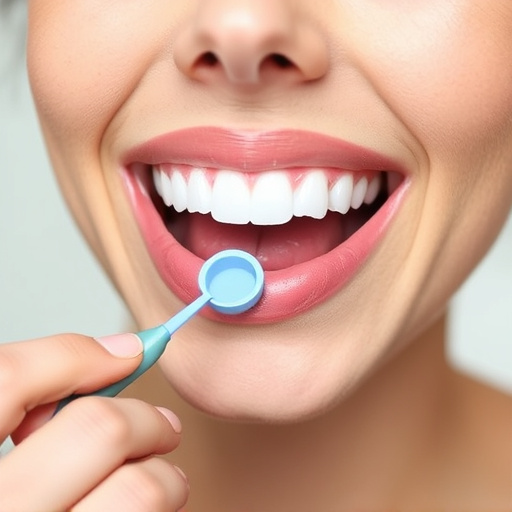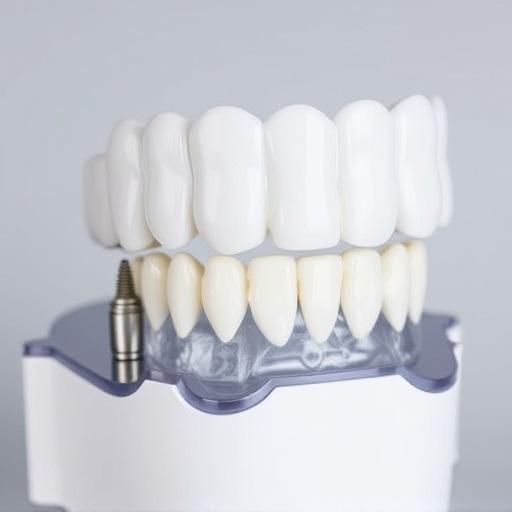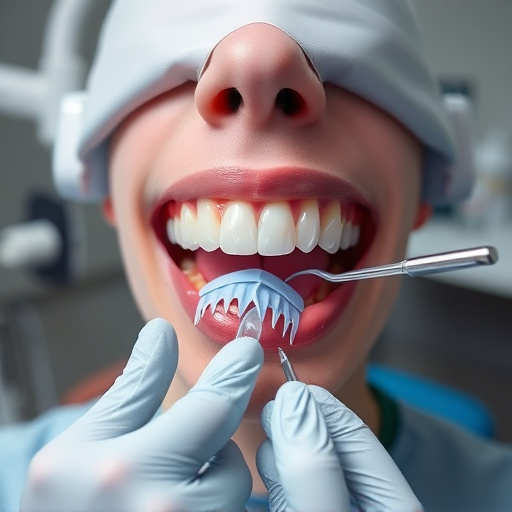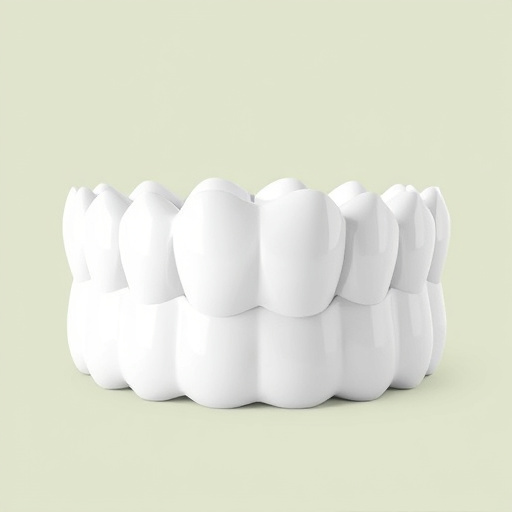Dental sealants for teeth are protective coatings applied to chewing surfaces of back molars and premolars, preventing food debris, bacteria, and plaque buildup from causing tooth decay. Made from durable materials like plastic or resin, these sealants bond to the enamel surface, filling pits and cracks. They create an impenetrable layer that reduces cavity risk, protects against acid erosion, and can last for several years with proper oral hygiene. Recommended for children as early as age 6, dental sealants are also beneficial for clear aligner treatments, offering enhanced tooth protection and reducing future repair needs.
Dental sealants for teeth are a preventive measure that shields your pearly whites from decay and damage. This clear protective coating is applied to the chewing surfaces of back teeth, creating a barrier against food particles, bacteria, and acids. By sealing out potential problems, dental sealants offer a long-lasting solution to reduce future dental issues like cavities and tooth infections.
This article explores the science behind these tiny guardians of oral health, their numerous benefits, and why they could be a wise choice for maintaining a healthy smile.
- What Are Dental Sealants and How Do They Work?
- Benefits of Using Dental Sealants for Teeth
- Who Should Get Dental Sealant Treatments?
What Are Dental Sealants and How Do They Work?

Dental sealants for teeth are protective coatings applied to the chewing surfaces of back teeth, primarily molars and premolars. They act as a barrier against food debris, bacteria, and plaque buildup, which are major causes of dental caries and tooth decay. Made from durable materials like plastic or resin, these sealants bond directly to the enamel surface, filling in microscopic pits and cracks that make teeth more susceptible to damage.
They work by creating an impenetrable layer that prevents food particles and bacteria from adhering to the tooth’s surface. This reduces the risk of cavities and other dental problems, such as tooth wear or chipping caused by chronic acid erosion. In many cases, dental sealants can last for several years with proper oral hygiene, making them a cost-effective and preventative measure in general dentistry. Some even recommend sealants for children as early as age 6 to protect their teeth during the cavity-prone years. Additionally, clear aligners used in cosmetic or orthodontic treatments can also benefit from sealant application to enhance tooth protection.
Benefits of Using Dental Sealants for Teeth

Dental sealants for teeth offer a range of benefits that can significantly enhance oral health and reduce the need for future tooth repair. By applying a protective coating to the chewing surfaces of molars, sealants create a barrier against food debris, bacteria, and plaque buildup, which are primary causes of tooth decay and gum disease. This proactive approach is particularly beneficial for children as it can prevent early childhood cavities, a common dental concern that may lead to more serious oral issues later in life.
Moreover, dental sealants provide a long-lasting solution that requires minimal maintenance. Unlike traditional fillings or clear aligners, which may need replacement over time, sealants can endure for several years, often lasting until the teeth are fully grown. This makes them an economical choice for both parents and children, ensuring optimal oral hygiene without frequent visits to the dentist for tooth repair procedures.
Who Should Get Dental Sealant Treatments?

Dental sealants for teeth are an excellent preventive measure for individuals of all ages but are especially beneficial for children and teenagers. This protective coating is typically applied to the chewing surfaces of back teeth, where decay-causing bacteria can easily gather due to their hard-to-reach nature during brushing. Those with a history of tooth decay or at-risk because of factors like poor oral hygiene, dietary habits, or genetic predisposition can greatly benefit from this procedure.
In family dentistry practices, dental sealants serve as a valuable tool in restorative dentistry, preventing the need for more extensive treatments down the line, such as dental fillings or even more complex procedures. By sealing out bacteria and food debris, these sealants create a protective barrier, significantly reducing the risk of future dental problems and promoting overall oral health.
Dental sealants for teeth offer a proactive solution for preventing common dental issues, especially in children and teenagers. By applying a protective coating to the chewing surfaces of molars, these sealants create a physical barrier against food debris, plaque, and bacteria. This simple yet effective treatment can significantly reduce the risk of tooth decay, cavities, and even more severe dental problems down the line. Whether for routine maintenance or as a preventative measure, incorporating dental sealants into oral care routines is a smart choice for maintaining healthy teeth and gums.














